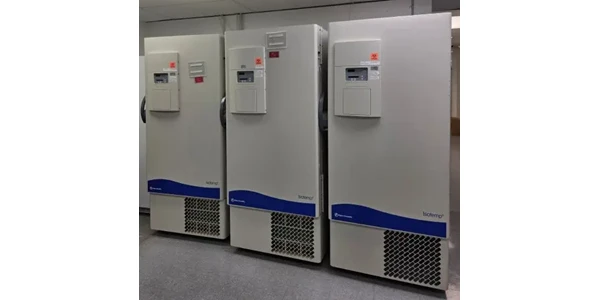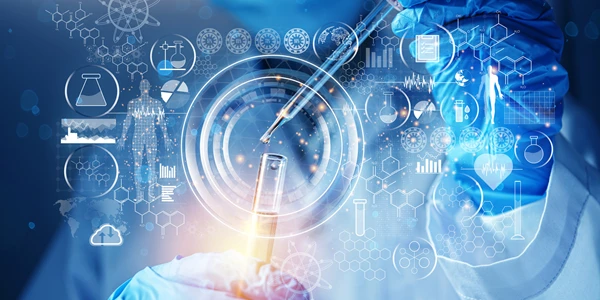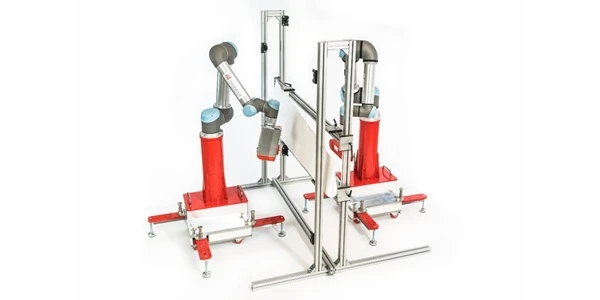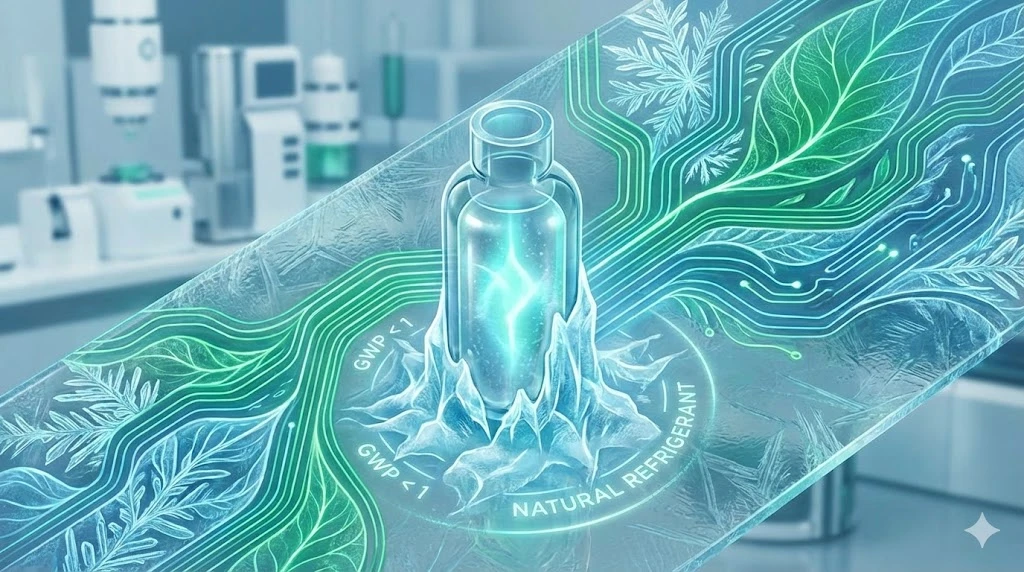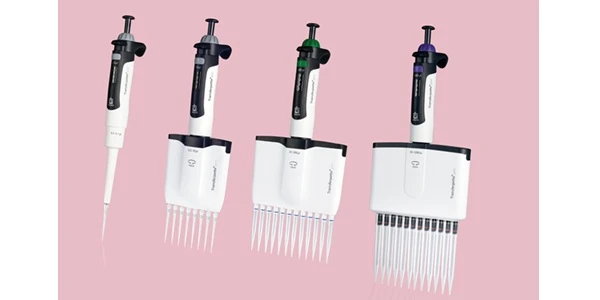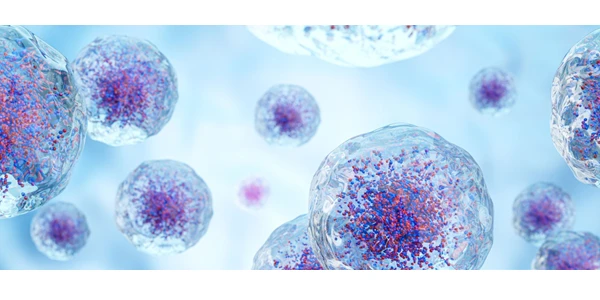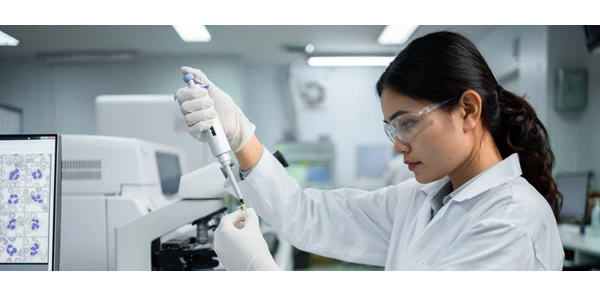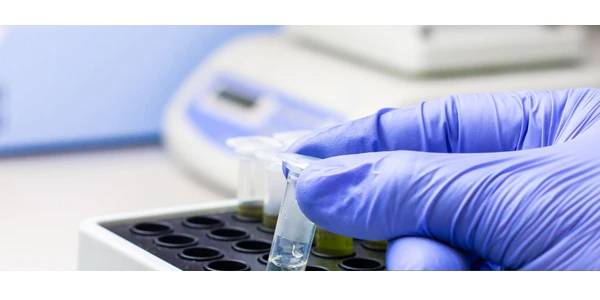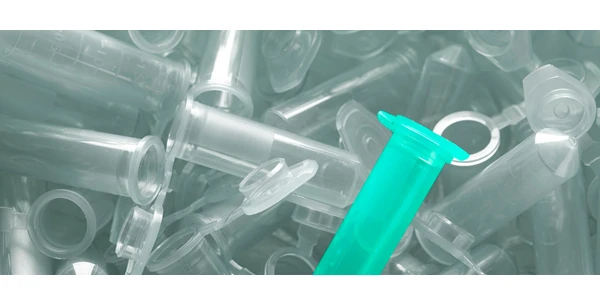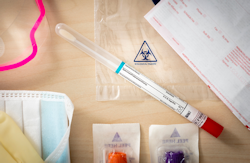New Products and Solutions to Meet the COVID-19 Challenge
COVID-19 has challenged the medical world in many ways. The speed with which the highly infectious virus has cut through traditional medical roadblocks has necessitated immediate and decisive actions. Collaborations between academic scientists, government, and industry have forged strong efforts to generate protective measures against the outbreak. Many companies have stepped forward with innovative products to help in the fight against the virus as well. Here are a few new products and solutions.
Personal Protective Equipment
First line medical care providers are the initial point of contact with patients, and the high transmissibility of the virus has made the use of personal protective equipment (PPE) a strict requirement. Despite this importance, healthcare systems have experienced shortages of PPE, which in turn have led to the development of contingency strategies.
One such solution has been the increased use of mask sterilization systems to allow decontamination and re-use of N95 respirators.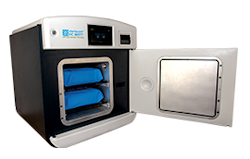
- The Sterilucent HC 80TT is a system granted Emergency Use Authorization (EUA) by the FDA for use during N95 mask insufficiencies. The system provides low-temperature sterilization using vaporized hydrogen peroxide and cycle monitoring technology, ensuring critical parameters are maintained throughout the process. It has a greater capacity than other tabletop units, has a user-friendly interface, and most importantly, provides superior sterilization assurance for a variety of instruments and PPE devices in hospital care settings.
Innovative thinking has led the re-deployment of existing technology for use in sterilization applications.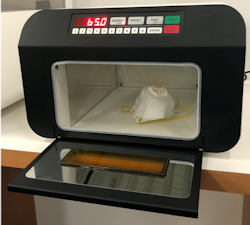
- Analytik Jena has noted the success of the new UVP Crosslinker in delivering the recommended >1 J/cm2 germicidal UV dose for surface disinfection of N-95 masks. This performance meets the CDC guidelines for the sterilization and re-use of respirators. Its also a prime example of using the performance attributes of an existing product for a new and important application in this critical time of need – beyond hospital settings to point-of-care clinics and testing sites.
COVID-19 Testing and Diagnostic Platforms
Initial testing efforts were blunted by process issues and the paucity of available and approved testing technologies. As new concepts were developed and existing technologies were re-designed, testing and diagnostic solutions have assumed the top position in the ongoing fight against COVID-19.
There are currently over 100 in vitro diagnostic tests and commercial testing kits available with EUA designation. These include technologies based on: real-time PCR (RT-PCR) detection of SARS-COV-2 nucleic acid panels or markers, quantitative detection of IgM, IgG, or combined viral antibodies, and other techniques. The use of these “high-complexity” or “moderate-complexity” tests are suited for CLIA-designated commercial laboratories or patient care settings, although some tests may be performed at small labs with CLIA-except status.
- Thermo Fisher Scientific was an early adaptor to the COVID-19 outbreak, offering the TaqPath COVID-19 Combo Kit for the qualitative detection of nucleic acid from SARS-COV-2 in nasopharyngeal swabs, aspirate, and lung lavage specimens. The RT-PCR kit is a high-throughput test enabling 1000 reactions per kit using an expanded range of existing Applied Biosystems RT-PCR instruments, including: the QuantStudio 5 Real-Time PCR System, the 7500 Fast Dx Real-Time PCR System, or the 7500 Standard or Fast Real-Time PCR System and the associated Applied Biosystems COVID-19 Interpretive Software. The assay targets the virus spike (s) protein and the nucleocapsid protein regions, offering high-specificity due to minimal proposed mutation at these sites. Turn around time is approximately 3 hrs.
Although early detection is key, tests oriented towards detecting antibody responses are needed to confirm infection and to assess the generation of immunity to the virus. A growing number of serology tests have entered the market, including those from companies proficient in the area of antibody-based diagnostics. Expertise in this testing landscape is especially relevant, considering the possibility for inaccuracy in antibody tests.
- Bio-Rad Laboratories has launched a new SARS-COV-2 total antibody blood-based immunoassay kit, and has applied for EUA status from the FDA. The test detects IgG, IgM, and IgA antibodies, an approach that appears more sensitive than assays directed a single antibody type. Clinical evaluation of the test has demonstrated specificity of >99% and diagnostic sensitivity of 98%, with no cross reaction against interfering specimens including no-COV-2 coronaviruses.
Initial generation of IgM and IgA antibodies can indicate exposure. However, a sustained response gives rise to IgG antibodies in the blood serum. Measuring all three may increase the specificity of COVID-19 detection and minimize false positives.
Sample Collection and Handling
Effective testing requires effective sample collection and processing products. Nasopharyngeal and oropharyngeal swabs (e.g. throat swabs) are required for RT-PCR testing in order to obtain the appropriate amount or virus from secreted materials. Blood draw and treatment tubes are needed for blood sample collection and serum or plasma separation. Virus transport media is required for sample preservation during shipping to testing locations. Labels and sample management solutions are a necessity in all matters relating to testing.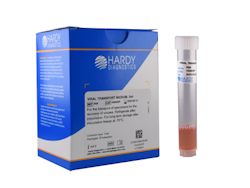
- Hardy diagnostics offers an extensive catalog of products designed for viral pathogen sampling, handling, transport and other functions. The Viral Transport Medium VTM products are recommended for SARS-COV-2 storage prior to transport, in adherence to the CDC Interim Guidelines for Collection, Handling, and Testing. The vessels are compatible with a range of approved sample collection swabs used for the variety of clinical testing platforms. Hardy Diagnostics also offer a wide variety of swabs and sample collection consumables.
- GA International offers labeling solutions for a broad range of duties. From COVID-19 RT-PCR testing kits, to patient sample tracking, to vaccine development protocol. Labels can be ordered with specified and completed fields or provided blank for in-house labelling. Labeling applications such as cryogenic, autoclavable, and chemically resistant can be specified as well.
Safety and Automation
The severity and the scale of the COVID-19 outbreak has necessitated the deployment of innovative safety and sample handling devices. Pathogen containment workstations are intended for sample handling and test workup, while UV-light treatment workstations provide pathogen eradication solutions. Automated liquid handling systems have been engineered for viral applications and include high-throughput testing workstations and sample management systems.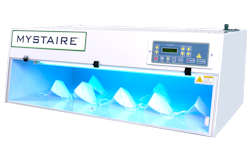
- Mystaire offers a line of UV light dead air boxes for irradiation of viruses on the surface of various objects. The Shortwave UV light box for surface disinfection incorporates a microprocessor controller and a digital timer, allowing users to consistently monitor the operation of the UV source and adapt the process as needed.
- Hamilton offers two new Automated COVID-19 Testing Workstations for fast-tracking sample processing and testing applications. The two workstations are built on Hamilton’s Microlab STARlet liquid handling platform for high-throughput diagnostic and research-based workflows.
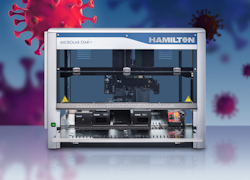 The MagEx STARlet assay ready workstation permits high-throughput magnetic bead-based RNA extraction of biological test samples. The PCR Prep STARlet assay ready workstation is pre-configured to automate high-throughput pre-PCR sample prep using the CDC guideline protocols.
The MagEx STARlet assay ready workstation permits high-throughput magnetic bead-based RNA extraction of biological test samples. The PCR Prep STARlet assay ready workstation is pre-configured to automate high-throughput pre-PCR sample prep using the CDC guideline protocols.
Both workstations are paired with necessary software and consumables, and can be configured to work with any supplier’s assay chemistry.
Outlook
Many other innovative safety and storage solutions are emerging in the fight against COVID-19. The therapeutic and vaccine development areas are witnessing significant growth in lab instrument solutions as well. Further products and new technologies will be detailed in subsequent articles, offering a closer look at their importance in treatment of COVID-19 and for the prevention of possible future outbreaks.
